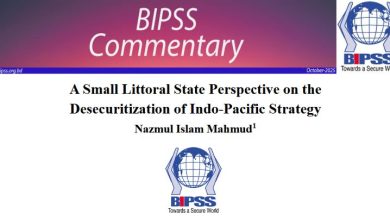
From Rhetoric to Action: Assessing the Impact of the Human Rights Council in a Changing World
BIPSS Research Intern Alice Daversin’s commentary, From Rhetoric to Action: Assessing the Impact of the Human Rights Council in a Changing World, evaluates the effectiveness of the United Nations Human Rights Council (UNHRC) in promoting and protecting human rights globally. Established in 2006 as a successor to the Commission on Human Rights, the UNHRC was designed to address its predecessor’s shortcomings. It consists of 47 member states and meets annually to tackle both thematic and country-specific human rights issues. The commentary explores the Council’s key mechanisms, including Special Rapporteurs, Commissions of Inquiry, and the Universal Periodic Review (UPR). While these mechanisms contribute to human rights monitoring, the Council faces political challenges, selectivity in its actions, and issues related to the credibility of its membership.
Case studies highlight both the successes and failures of the UNHRC. The Council has played a positive role in addressing crises in Burundi, Syria, and Sierra Leone, but has been criticized for its weak response to human rights abuses in China (Xinjiang), Sudan, and Afghanistan. The UNHRC’s effectiveness is often undermined by geopolitical interests, politicization of debates, and resource constraints. Ultimately, the commentary assesses the UNHRC’s evolving role in addressing modern human rights challenges, such as digital rights, AI, and climate change, while questioning its ability to remain impartial and effective in a rapidly changing global landscape.



